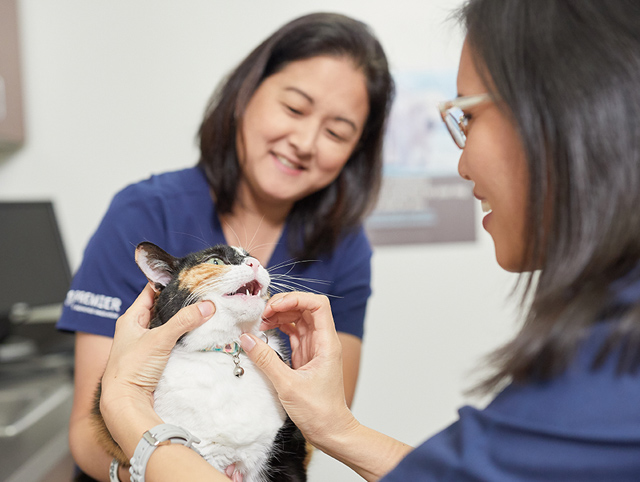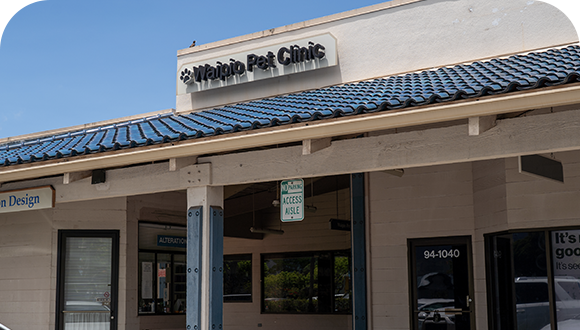Do you know how to recognize the symptoms of pain in your pets? You may be surprised that most people do not. They may mistake a cat not eating for being picky or a dog that is not playing as much for simply being bored with his old toys. For this reason, the International Veterinary Academy of Pain Management created Animal Pain Awareness Month. This September, get to know your pet and learn how to recognize signs that it may be in distress.
Types of Pain and Their Signs
There are two types of pain: acute and chronic. Acute pain often comes on suddenly and is the result of an injury or illness. Animals experiencing acute pain may be overprotective of the area that hurts, be more vocal than normal, or lick and bite in a specific area. Other signs of acute pain include restlessness, panting or sweating, and heavier breathing.
Like humans, animals may also experience ongoing pain known as chronic pain. If your pet is dealing with chronic pain, it may limp or be unwilling to move at all. Your pet may also lose its appetite and spend a lot of time licking one specific area. Ongoing pain may also lead to changes in your pet's personality and dullness in the eyes.
Symptoms of Pain in Specific Breeds
Different breeds may exhibit pain in other ways. Is your dog refusing to play or interact with other animals or humans as much as it used to? Maybe it seems more anxious, is more submissive than usual, or is whimpering or growling. Chewing, changes in how the pet sits or stands, and aggression are also signs that a dog is in pain.
Like dogs, cats may stop playing and socializing as much as usual if they are experiencing pain. They may begin hissing or spitting, walk with stiff posture, and stop grooming themselves. Other signs of pain in cats include changes in bathroom habits, flicking their tails, or staying in hiding.
Of course, dogs and cats are not the only animals to show signs of pain.
• Birds - When birds are in pain, they may move more than normal and vocalize more often. They may try to escape their cages but might not move at all if you handle them. Other signs include increased respiratory rates and lack of eating.
• Fish - Pain in fish is harder to diagnose. However, if your fish is sick or injured, it may move more often or show an increase in its ventilatory pattern.
• Rabbits - Rabbits experiencing pain may hunch over, become aggressive, eat less, and complain vocally against being handled.
• Rodents - If your rodent is in pain, it may stop grooming and become unusually aggressive. If your rodent is in the same cage as another pet, it may avoid interaction.
How To Treat Pain at Home
Whether you can treat your pet's pain at home depends on its species and how severe the problem is. Consider the type of pain when deciding whether to treat it at home. If the pain is in the joints and related to arthritis or aging, consider low-impact exercises such as swimming or short walks to get joints moving and ease the stiffness. Massage and physical therapy exercises can also be helpful, as can joint supplements that contain glucosamine. Dosage is dependent on the size of your pet.
If your dog has chronic pain, it may have trouble sleeping. If this is the case, consider administering melatonin as well. Available as treats, the natural sleep aid can help your pet to relax and sleep when the pain has otherwise kept it awake.
Before giving your pet glucosamine or melatonin, ALWAYS consult your veterinarian beforehand.
When To Contact a Veterinarian
Pain cannot always be treated at home, especially for cats and small animals, so it is important for you to know when the time is right to call a veterinarian. There are several ways to determine this. Lots of cuddling means you probably recognize your pet's breathing patterns fairly well. Whether your dog is panting more than usual, or your guinea pig sounds like it is wheezing, contact a veterinarian when you notice changes in breathing. This could include breathing faster or taking shallow breaths.
Finally, if your pet continues to limp, hide, or vocalize pain, do not wait to call the veterinarian. What could be an easy fix now may turn into something expensive for you and traumatic for your pet if you ignore the symptoms. You should also call a vet immediately if your pet has open wounds, seizures, bleeding from the head, a swollen abdomen, or seems suddenly disoriented.
If you would like to learn more about finding a veterinarian for your animal, or if you'd just like to learn how to help spread awareness about animal pain, contact Pet Hospitals of Hawaii for information.


















